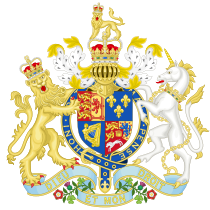Barratry was the offence under English common law of too frequently taking disputes to the courts, particularly for profit or harassment,[1] or pressing weak or false legal suits.[2] The offence emerged following the Statutes of Westminster in 1275, which forbade any defamation of the king or his magnates, and was soon extended to include anyone accused of “rabble-rousing”, or treacherous thoughts or speech.[2]
Barratry was abolished as a criminal offence in England by the Criminal Law Act 1967.[3][4]
The term barratry is also used to describe any act committed by the master or crew of a ship to the detriment of its owner or charterer, such as scuttling the vessel or any illegal activity that might lead to the ship’s forfeiture.[3]

